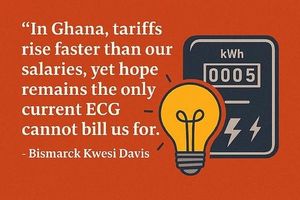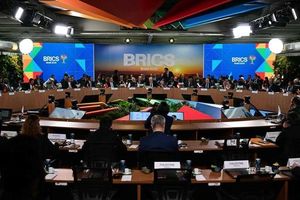India's growth story continues to make headlines as the country embarks on ambitious infrastructure investments and fosters international partnerships. Recently, the State Bank of India (SBI) successfully raised $500 million through five-year bonds from global investors, underscoring the confidence the international market has in India’s economic stability. This move highlights SBI's ability to attract foreign capital, which is pivotal for financing large-scale infrastructure projects and meeting the funding requirements of its branches abroad.
The bond issuance was particularly noteworthy, drawing bids totaling $3 billion, thereby showcasing strong global demand for Indian debt securities. Priced at 82 basis points above the US Treasury, this issuance not only achieved one of the tightest spreads for an Indian financial institution but also reflected SBI's solid credit rating among investors. With the proceeds earmarked for general corporate purposes and funding foreign branches, SBI is enhancing its capacities to support economic growth at home and abroad.
Meanwhile, the Africa Finance Corporation (AFC) secured another milestone by closing a $300 million syndicated loan focused on India. This loan, which was oversubscribed by 50%, marked the corporation’s efforts to diversify its international investor base and strengthen ties with Indian banks. The deal pulled together seven leading Indian banks, including State Bank of India and Canara Bank, which signifies growing confidence among Indian financial institutions to commit resources to transformative infrastructure projects across Africa.
Banji Fehintola, Executive Board Member and Head of Financial Services at AFC, expressed optimism about the collaboration: "This transaction is a testimony to our ability to mobilize global capital for impactful development. By engaging with Indian financial institutions, we create transformative opportunities for sustainable growth across Africa." The funds raised will significantly contribute to infrastructure development, focusing on key areas like energy, transportation, and industrial advancement.
On the domestic front, Greaves Cotton's lending subsidiary, Evfin, has set ambitious goals to finance 500,000 electric two-wheelers over the next five years. Currently, the company has financed approximately 12,000 units, but with India’s EV market rapidly growing, its strategies are aligned with the national push toward cleaner transportation solutions.
Evfin aims to cover 80% of the EV two-wheeler financing market by extending its services to 150-160 cities, significantly up from just 42 cities today. The timing is opportune, as EV sales now constitute about 8% of two-wheeler sales, with projections indicating substantial growth as infrastructure improves and consumer acceptance rises.
P. B. Sunil Kumar, CEO of Greaves Finance, shared insights on Evfin's broadening service offerings, emphasizing the need to build trust among potential buyers. The financial products they have introduced, such as SmartFin and RightFin, address customer concerns about resale value and provide flexible financing options. This holistic approach aims to create a marketplace not just confined to financing but also incorporating insurance, after-sales services, and access to charging stations.
To speed up loan approvals, Evfin has implemented efficient digital financing models, allowing decisions to be made as quickly as 2.5 minutes. This modern approach to financing positions Evfin as a significant player as the demand for electric vehicles accelerates.
Another key component of India’s infrastructure growth narrative is focused on the financial ecosystem's adaptability. With recent calls from industry leaders like Sulajja Firodia Motwani to reduce Goods and Services Tax (GST) on electric vehicle batteries and infrastructure from 18% to 5%, there's momentum pushing for fiscal policies supporting the EV sector. Currently, batteries represent about 50% of vehicle costs, and lowering GST could alleviate financial pressures on manufacturers and consumers.
Motwani's advocacy for changes to GST rates is part of broader efforts to make electric vehicles more accessible and drive their market penetration from nearly 8% currently to an ambitious 30% by 2030. It underlines the necessity of government support as the foundation for sustainable EV infrastructure growth.
This confluence of actions - SBI's successful bond issuance, AFC's strategic loan collaborations, Evfin's aggressive financing goals, and advocating for beneficial taxation policies - paints a promising picture for India’s infrastructural and economic development ambitions. It positions the country not just as a local powerhouse but as a growing player on the global stage, capable of attracting foreign capital and partnerships to support its burgeoning infrastructure needs.
With the substantial backing from both domestic and international financial institutions, India is well on its way to not only enhancing its infrastructure but also establishing itself as a leader in sustainable development initiatives across various sectors, including transportation, energy, and beyond.



